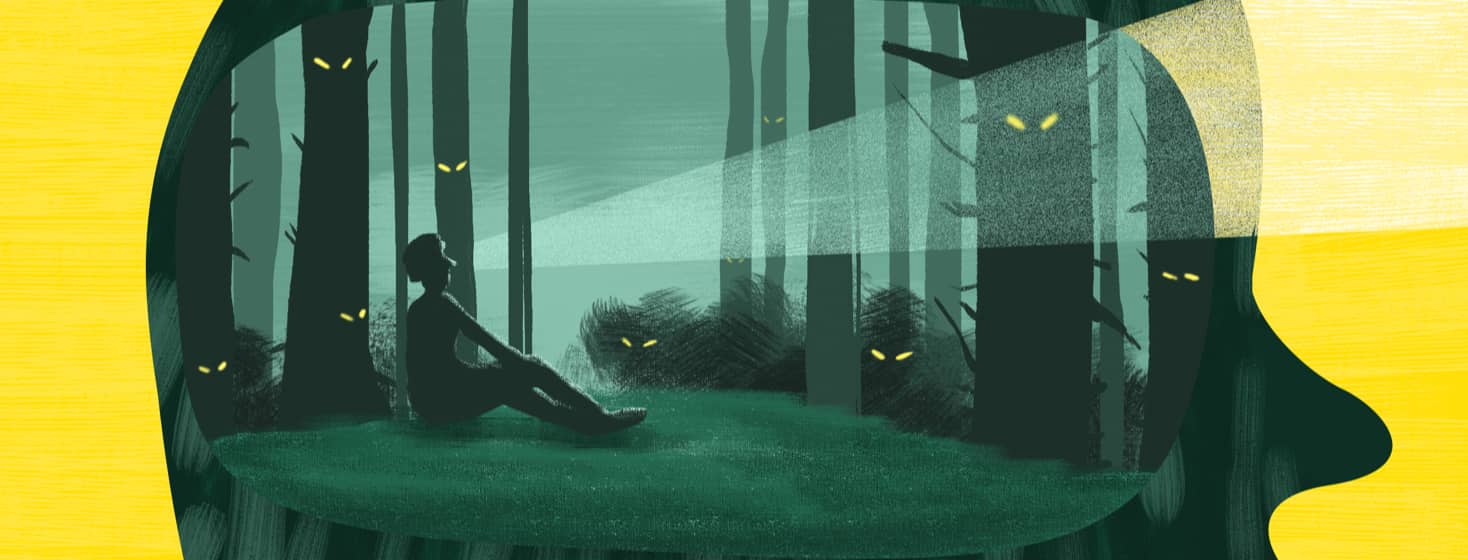Alzheimer's Disease: What We Can't See
Would you call Alzheimer's disease a mental or physical disorder? If you had to choose a descriptor, which one would you choose?
All too often, those with mental illness are treated differently than those with visible physical disorders or diseases. I recently recalled a question my cousin posed about the differences between mental and physical health. Her question was, "Is the brain not a part of the body?"
What does Alzheimer's disease look like?
When I think about Alzheimer's disease, I admittedly think about a person's mental decline more than anything. I think about problems with recollection. I think about a lack of word recall.
I remember my grandmother growing silent and my dad's aphasia. I don't always think about the physical aspects of the disease.
What we can't see
Daddy looked like anyone else, even after his big stroke. He was obviously growing older and becoming frailer but looked physically sound otherwise.
He had no lasting paralysis. He regained the ability to feed himself and perform most of his self-care routine. No one could see dementia on his skin. No one could hear the turmoil within his brain. His confusion looked more like anger or disinterest than disability.
Behavioral norms
Similarly, my grandmother always looked physically sound. She wasn't, but there were no apparent signs of the disease within her.
No one would have known she once stood proud and articulate based on looks alone. No stranger would have known that quiet and withdrawn weren't her behavioral norms.
Expectations vs reality
Sometimes it's harder to understand the things we can't see, even when we're squinting and tilting our heads trying to get a glimpse of what's happening. Try as we might, we couldn't see the interior physical damage. So, sometimes we couldn't really grasp it.
If we see a person with their leg in a cast, we expect to see them limping across the room. If we see a physically sound person by all outside appearances, we expect everything on the inside to be ok too.
That old "don't judge a book by its cover" thing is handy if we remember to employ it.
Welcome to the Island of Misfit Toys
I'm reminded of the old Rudolph the Red-Nosed Reindeer cartoon.
Those of us who were kids over the last several generations no doubt recall the Island of Misfit Toys from the movie. The troubled toys greeted us every Christmas on network tv. There was a train with square wheels. There was a cowboy who rode an ostrich. There was a boat that couldn't float. There was a water pistol that shot jelly. I always wondered why they couldn't just change it with water, but maybe that plays to the narrative that things aren't always so easily fixable.
They were so-called "misfits," but one always caught my eye. There was a very regular-looking doll. I never noticed a problem. After seeing it roughly a million times, I still couldn't pinpoint her issue.
I've heard theories over the years that her problems weren't visible. There was a rumor that she had some mental illness. How progressive was that line of thinking for a cartoon produced in the 1960s?
By definition
Alzheimer's disease, by definition, is physical. The Mayo Clinic says it is "a progressive neurologic disorder that causes the brain to shrink (atrophy) and brain cells to die." 1
So, while we see behaviors changing, we don't always stop to consider the physical toll it takes on a body. When arguably the most critical part of the body is affected, the behavioral symptoms are what we notice the most.
Just because you don't see or recognize a problem doesn't mean there isn't one. Even if you notice symptoms, you're not seeing the whole picture. And, most likely, everyone you see is dealing with something you know nothing about, either physically or mentally.
A simple practice: Be kind
A quote that has circulated widely says, "Be kind, for everyone you meet is fighting a hard battle." The section has been attributed to a few people but was most likely penned by Ian Maclaren. No matter the author, it rings true around a hundred years after.
What we see as family members and caregivers is just a scratch on the surface of what is actually going on. So, remember to be kinder than you have to be. We have no idea how hard the internal battles actually are. We can't see them.

Join the conversation